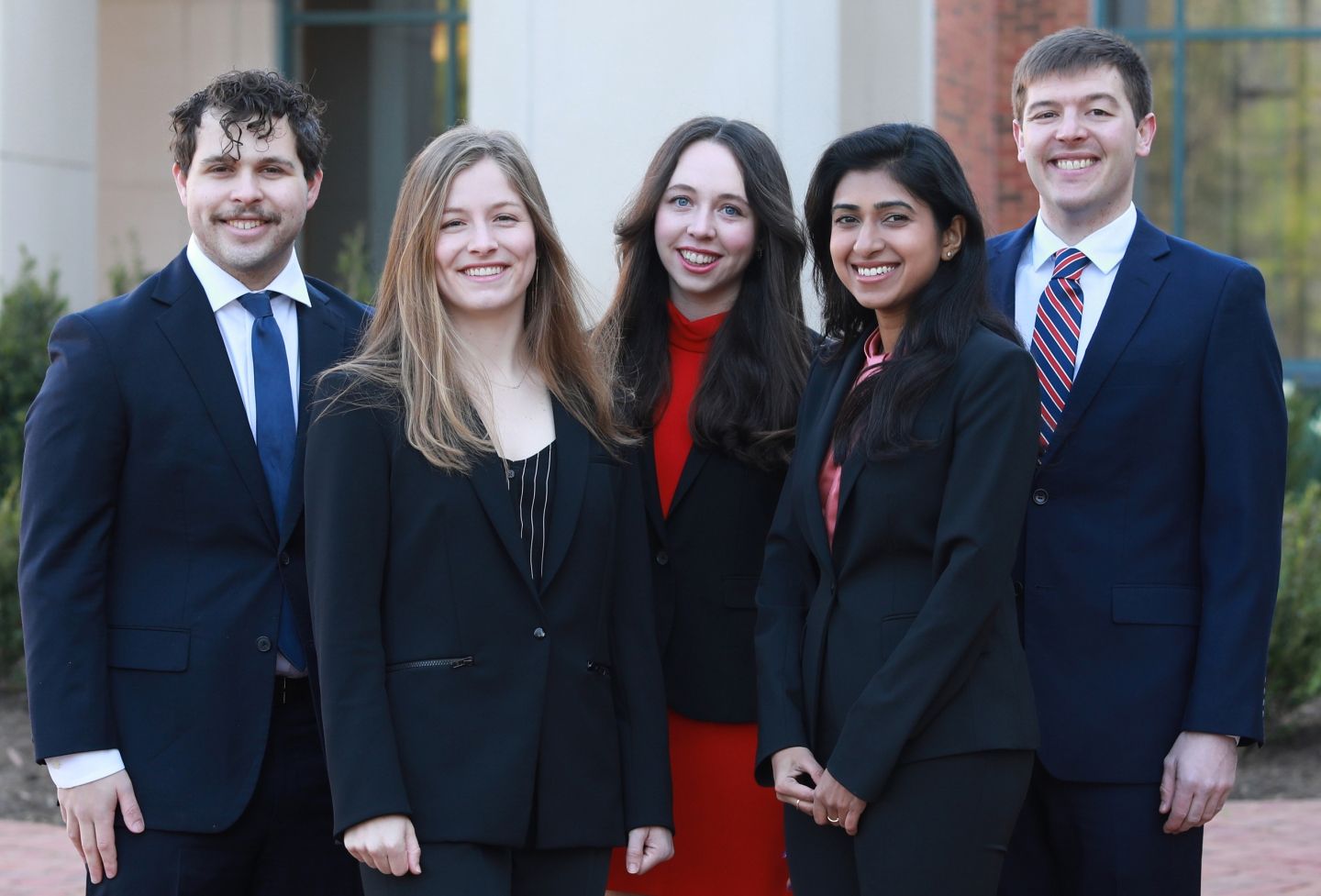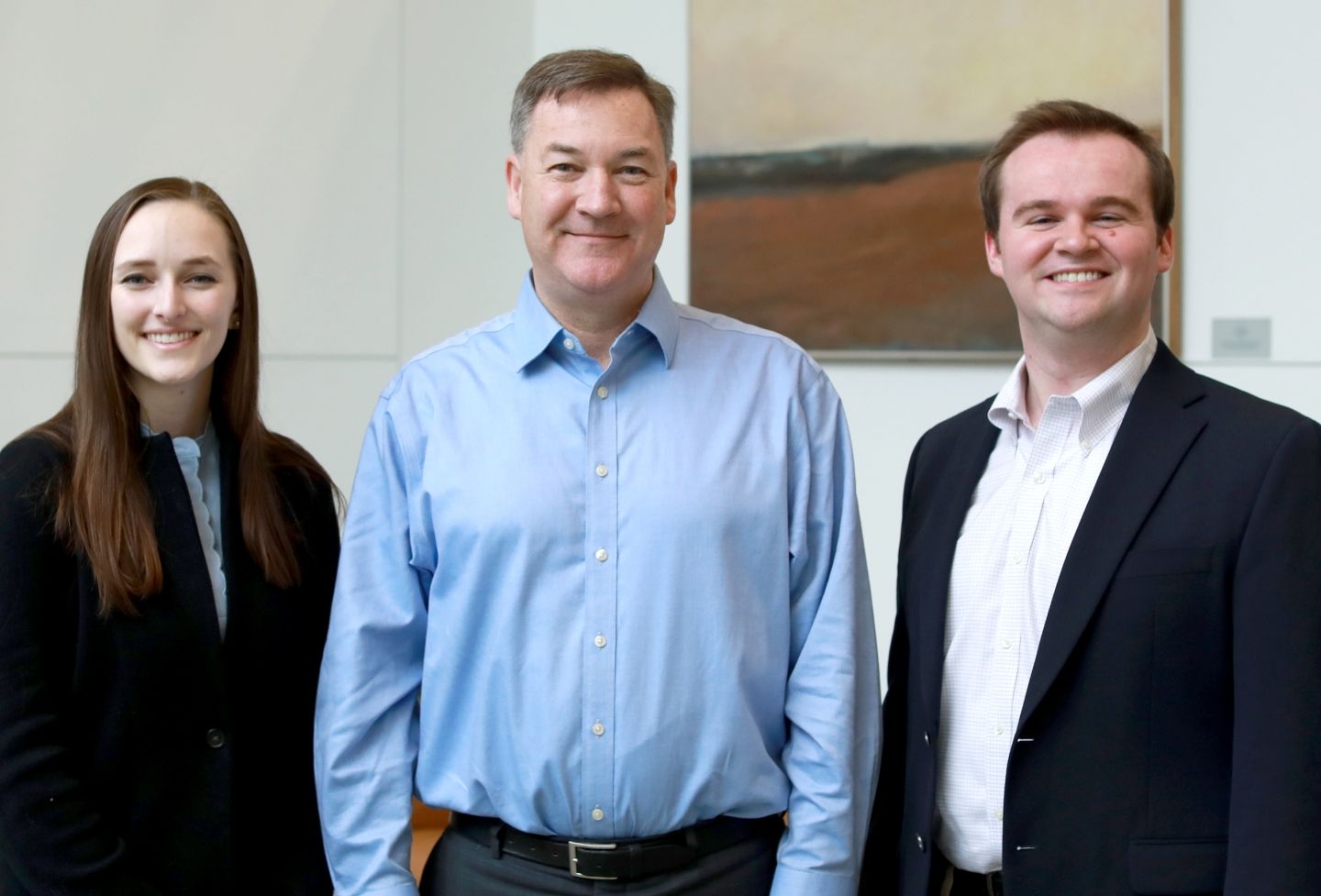A University of Virginia School of Law student is helping to fight a legal battle in federal and state courts over mining uranium in Virginia.
Like other students in the Environmental Law and Conservation Clinic, second-year Sevren Gourley is working closely with the Southern Environmental Law Center, a leading public interest environmental law and policy organization headquartered in Charlottesville and serving the Southeast. Gourley's project involves supporting a state moratorium on uranium mining that is being challenged by landowners. The state, economic development associations and environmentalists also support the moratorium.
"Working one-on-one with SELC attorneys and doing research with real-life impact has given me some amazing insight to the landscape of environmental litigation," Gourley said. His tasks at the SELC include researching legal questions, writing memos describing his findings and drafting briefs and motions for SELC attorneys to finalize and file.
The enrichment and processing of uranium, which is used to fuel nuclear power plants, is regulated at the federal level. But states largely have exclusive control over mining raw uranium ore from the earth. Most U.S. uranium is mined in Western states, but one of the larger, unmined uranium deposits in the country is in Pittsylvania County, Virginia, on private land. In 1983, the Virginia General Assembly passed a moratorium prohibiting uranium mining in the state.
"Shortly thereafter, the market for this type of uranium fell out, so there wasn't a lot of momentum to get the moratorium lifted for decades," said SELC attorney Will Cleveland '09, who is working with Gourley.
One of the private landowners formed several corporations starting in 2007 for the purposes of lobbying the General Assembly. After those efforts stalled, the corporations commenced suit in federal and state courts in 2015.
"They filed a federal suit claiming that the Atomic Energy Act [and not state law] should trump the state's longstanding and traditional authority over mining," Gourley said.
In December, the U.S. District Court for the Western District of Virginia dismissed the case, ruling that Congress's Atomic Energy Act doesn't address or preempt uranium mining on private land. That decision is currently on appeal, and the SELC plans to submit an amicus brief at the end of Aprilin support of Virginia's state law. A hearing on the matter is scheduled before the U.S. Court of Appeals for the Fourth Circuit in May.
In November 2015, the same plaintiffs also filed a state case against the Commonwealth of Virginia based on the takings clause of the Virginia constitution, asserting that the uranium mining moratorium effectively deprived their property of all economic value, and that they were due either an injunction to state agencies to ignore the mining ban and process their mining permits or fair compensation for their lost property.
In both the federal and state cases, the SELC represents the Dan River Basin Association and the Roanoke River Basin Association, two nonprofit organizations that support economic development to the region with an eye toward sustainable growth through agriculture (the area is one of the largest, cattle-producing regions of the state), tourism and outdoor recreation along the Dan River, which the commonwealth has designated as a state scenic river.
"They are very worried about the stigma that uranium mining could bring, and the potential negative economic impact on these rural areas," Gourley said. "Urban locations also have cause for concern if the moratorium is lifted. Cities like Virginia Beach and Hampton Roads sponsored studies and published documents about how a disaster could destroy their water sources."
In early March, the SELC filed an amicus brief in the state court case on behalf of the two river associations, supporting the state's argument against lifting the moratorium.
Those who defend the moratorium, including the SELC and the state general assembly, are concerned about what could happen as a result of mining such a large quantity of uranium in Virginia. Intense rainfall, hurricanes, and the close proximity of neighboring communities and schools aren't factors where most uranium is mined in arid, western regions of the United States.
"In fact, there is no uranium mining east of the Mississippi," Gourley said.
But what about the jobs that would be created by the uranium mining industry as a result of the moratorium being lifted?
"There is a lot of misunderstanding surrounding that issue," Gourley said. The SELC and its clients point to a state-commissioned study, which estimated that in a best-case scenario, uranium mining could mean a $6 billion benefit for Virginia, but that a worst-case scenario could trigger an $11 billion loss.
For Gourley, the clinic provides a chance to gain practical experience that aligns keenly with his professional goals. Having grown up on a farm in Central Virginia before earning his B.A. in history from Virginia Tech, he always had an interest in the natural resources of the Southeast, and knew that he wanted to focus on environmental law.
"It's a truly rewarding experience," he said of the clinic. "It has real practical value that I'll be able to apply to my career."
Cleveland said clinic students like Gourley have a considerable role in the cases pursued by the SELC, which has 70 attorneys in offices in six states.
"They're getting more substantive experience and can take ownership of their work and the effect it has on the outcome of the dispute," Cleveland said.
UVA Law professor Jon Cannon, a former general counsel of the U.S. Environmental Protection Agency, is serving as the interim instructor of the clinic.
"Right now all the cases that our students are working on cover a diverse range of current issues, including fracking, coal ash storage, and other land-use disputes," Cannon said. "Students have the opportunity to work on important cases that have significance in the long-term enterprise of helping to protect the environment in this region."
SELC Virginia office director Cale Jaffe '01 said the organization appreciates the clinic's help.
"We are lucky to have one of the nation's most elite law schools in our backyard," Jaffe said. "Collaborating with the Law School in many different respects enhances our work. We have a great deal of respect for UVA and for the top-quality attorneys they produce."
Founded in 1819, the University of Virginia School of Law is the second-oldest continuously operating law school in the nation. Consistently ranked among the top law schools, Virginia is a world-renowned training ground for distinguished lawyers and public servants, instilling in them a commitment to leadership, integrity and community service.


